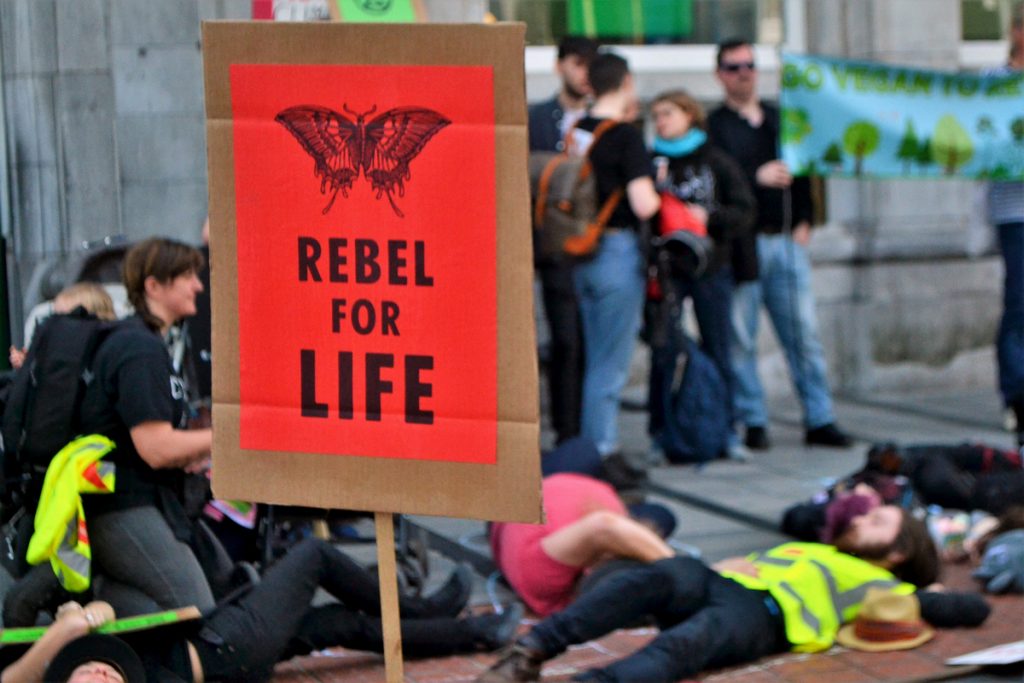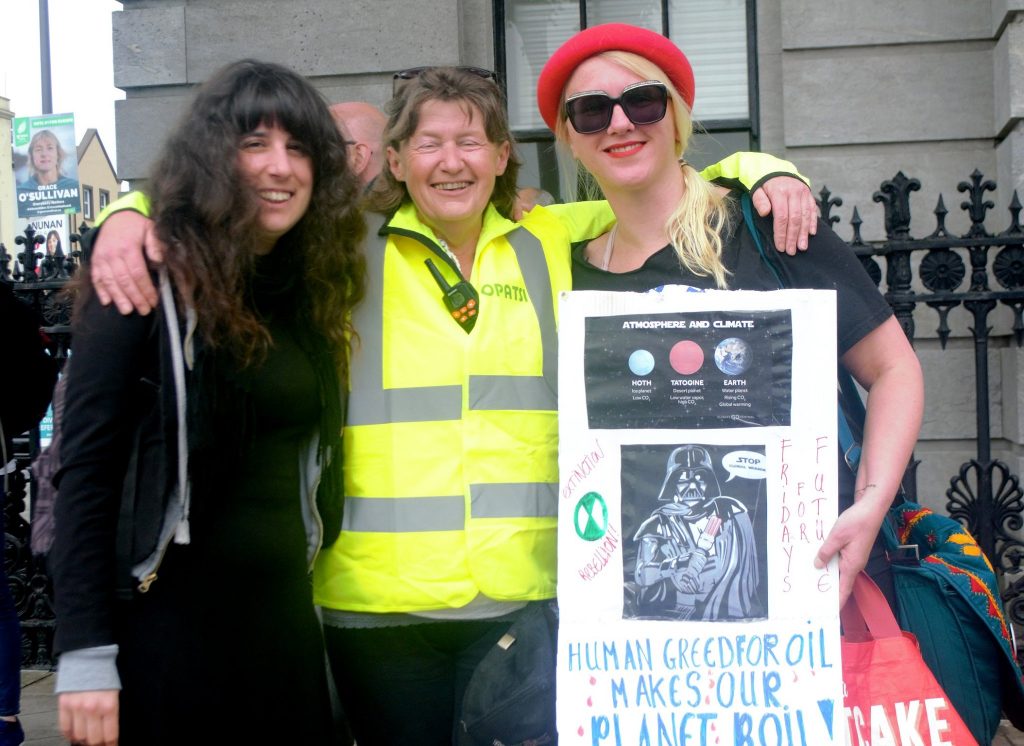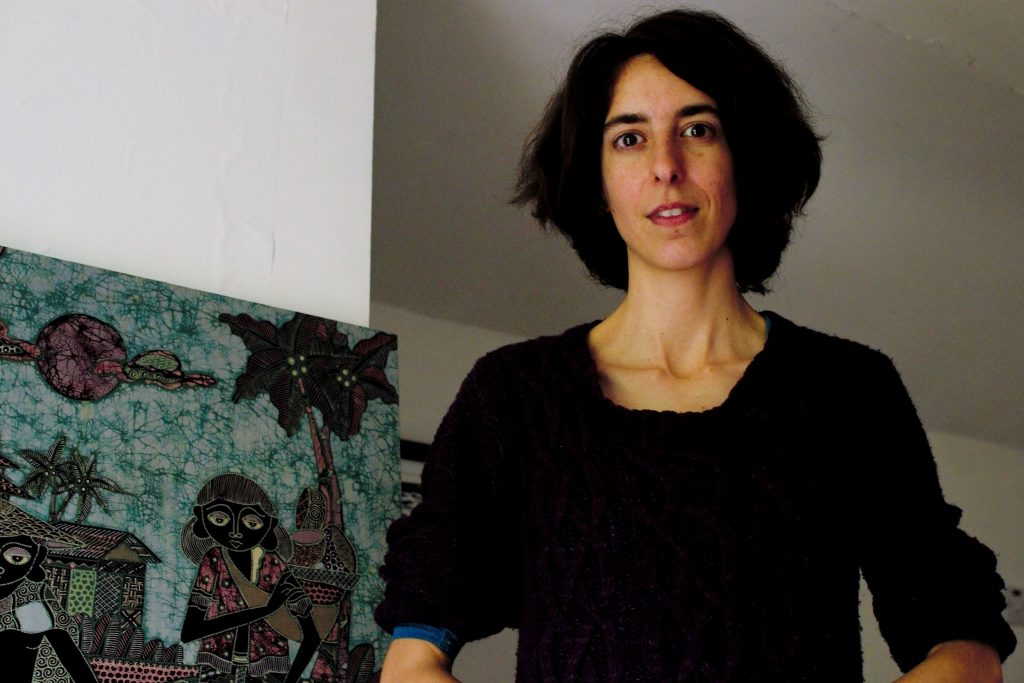Activist burnout running through the climate activist community

August 27th, 2019
On a recent Sunday morning, Wren Alice Ind, a 19-year-old member of Extinction Rebellion (XR), took to Facebook to announce her temporary hiatus from the activist group.
“I’m having a step back from XR for a week or two until my mental health is restored and a sense of normality is back,” she told her friends and followers.
“It’s taking a serious toll on my normal life and mental health,” said Wren, who has to juggle between eco-activism and taking care of her one-year-old daughter Lola.
While the concept of climate or eco-anxiety has grown in everyday parlance recently, burnout within the campaigning community has garnered little attention to date.
The problem of activist burnout is a serious issue, however, with a recent study of 22 social justice activists from George Mason University concluding that campaigners are “highly susceptible” to developing burnout syndrome.

Burnout Syndrome
The World Health Organisation recently reclassified burn-out as an official medical condition, with psychotherapist Caroline Crotty in agreement that issue needs to be taken seriously.
“Everything that you would associate with stress you can associate with burnout like headaches, heart palpitations, quickened breath, feeling dizzy or disjointed or maybe even fainting,” she says.
Crotty says burnout happens when our brain, overwhelmed by the onrush of information and plans, reaches its full capacity, leading to “emotional, mental and physical exhaustion”.
“Burnout doesn’t happen overnight; there can be a slow build-up with several warning signs,” she says, calling for activists to take heed if feeling exhausted and drained.
Having a “more or less constant feeling of dread”, not falling asleep easily or having interrupted sleep are also signs to watch out for she warns.

The guilt
For Tjitske de Vries, another member of XR Cork, burnout arrives quickly and in waves but the idea of stepping back from the frontline of climate activism prompts feelings of guilt.
“I think we all [at XR] had activism burnout quite quickly because when you open your eyes to one struggle, you start to see all the struggles,” she says.
“I do really try to take some time for myself, but I always have that feeling of guilt, something in the back of my mind thinking, ‘I’m on a beach right now, I could be doing this or that’.”
De Vries finds that when eco-activists develop awareness of the scope of the climate problem, the realisation can lead to a heightened level of anxiety and cynicism.
“Then you know, you go to a meeting, or you go to a protest, and there are 30 people there, and you’re like, why aren’t we more angry about this? And that’s where my burnout comes from.”

Logical Solutions
Marta Costa Neto, a microbiologist also involved in XR’s Cork branch, says that she grows anxious when thinking about the impacts of our changing climate but attempts to tackle the angst using her “analytical mind”.
Discussing the dilemmas of eco-activism from her book-lined living room with The Green News, she pulls out two relatively hefty books from the bookshelf: Active Hope: How to Face the Mess We’re in without Going Crazy and Coming Back To Life: Practices to Reconnect Our Lives, Our World.
The author of both and veteran environmental activist Joanna Macy argues that we base our hopes on either outcome or intention and that committing to a cause fuelled only by an outcome-based hope can lead to despair and burnout.
Since environmental actions may not always yield a tangible outcome, the hopes of result-orientated activists can easily fade away, she writes, leading to emotional exhaustion. De Vries admits that it is easier to focus on the desired outcome than to move forward using the power of honourable intentions.
“In the Repeal movement, for instance, there was going to be a referendum, and [the eight Amendment] was either going to be repealed or not,” she says. “But with the environmental movement, the Government declares a climate emergency but then sells licences to drill to big companies.”
Neto, who organises online “empathy circles” for eco-activists where each campaigner gets to vent and receive empathetic comments in return, finds that the power of listening to activist chagrins is vital to keeping emotionally sound.
“We need to understand what is happening, how scary it is, and how we can work with others to channel that energy into something positive,” she says.
She is tinkering with the idea of forming a book club in Cork where activists can read Ms Macy’s books together – a form of group empowerment for green rebels.
[x_author title=”About the Author”]







